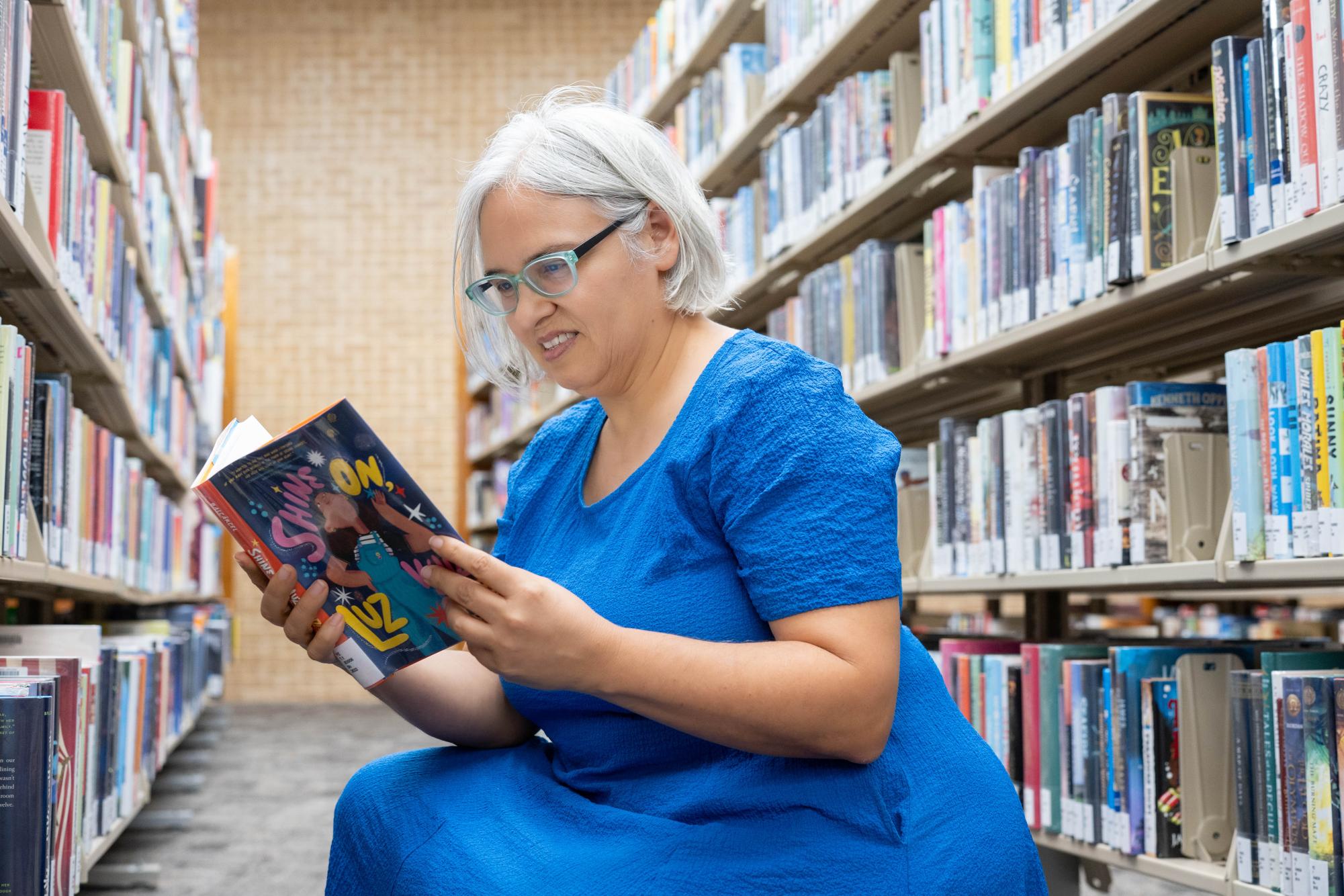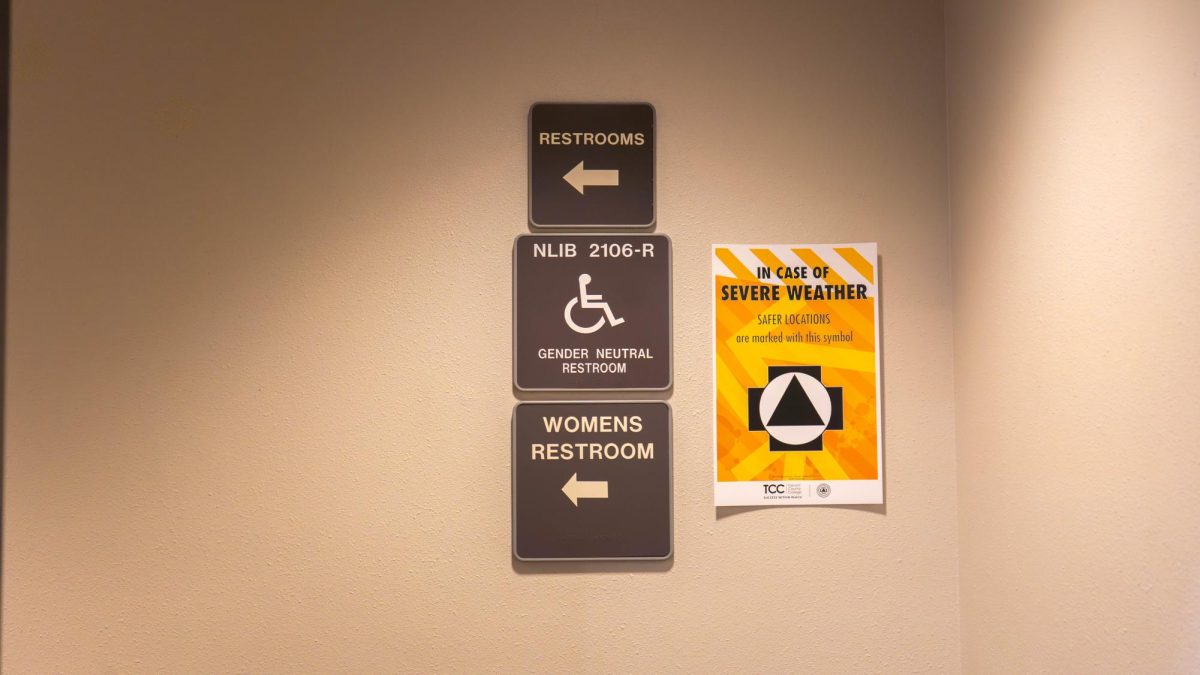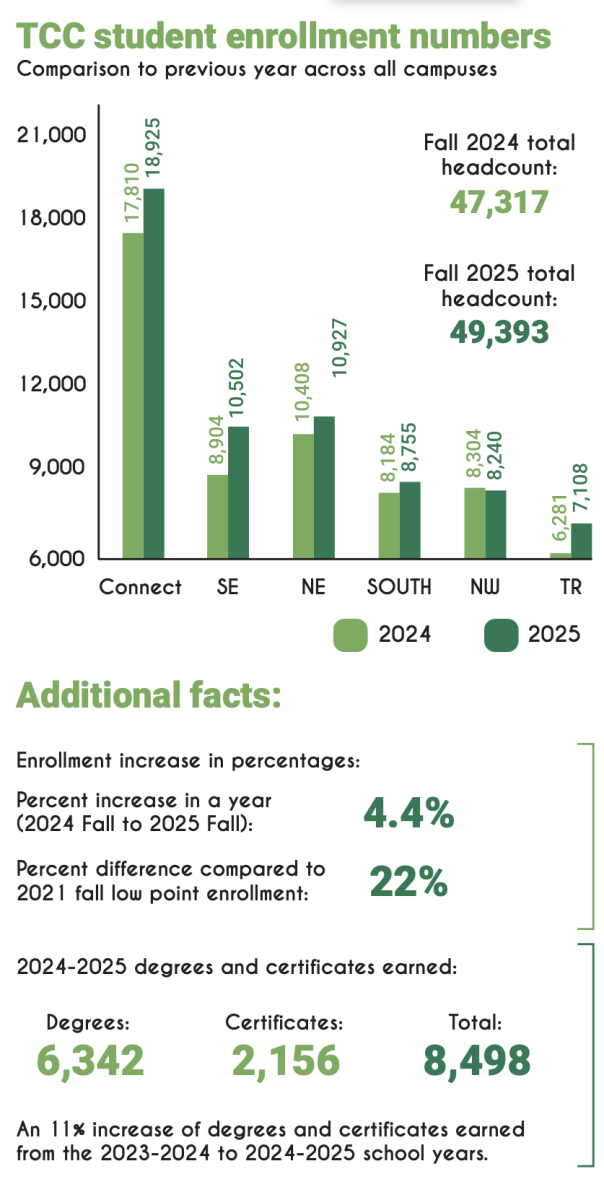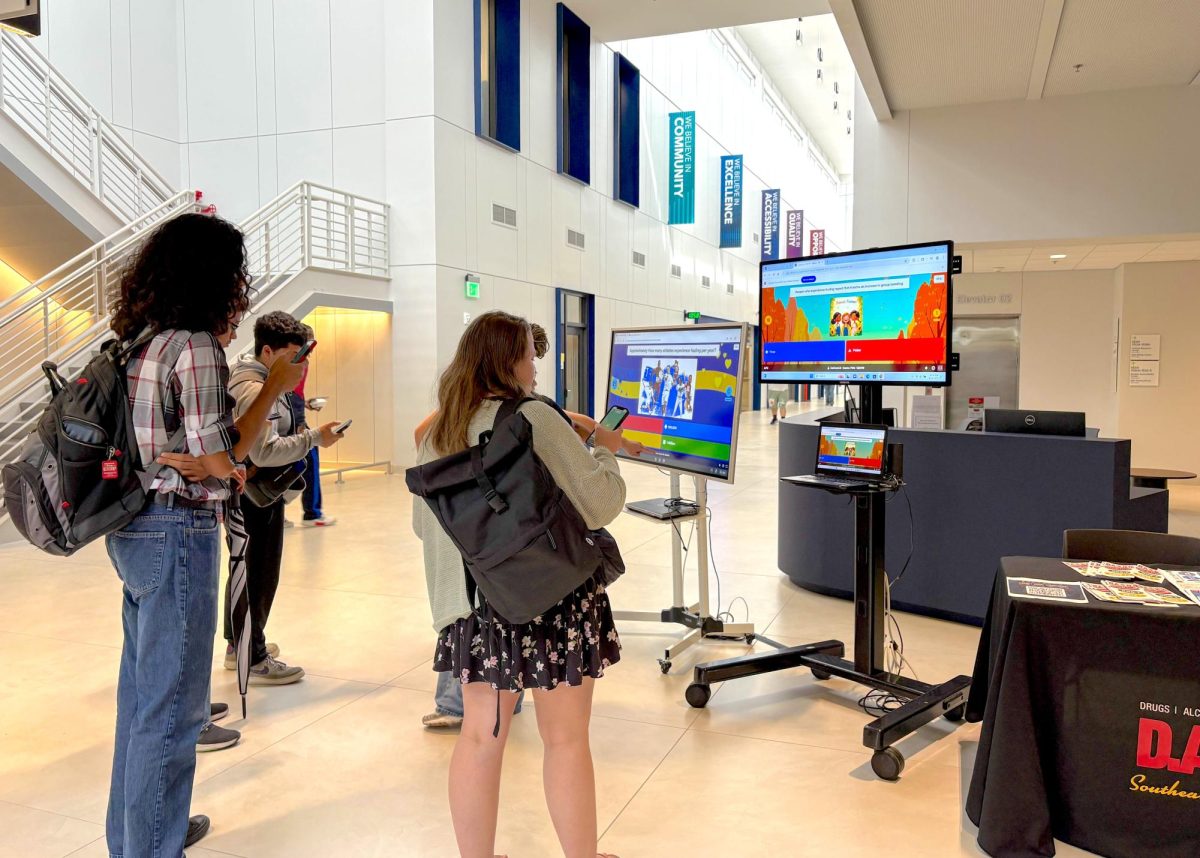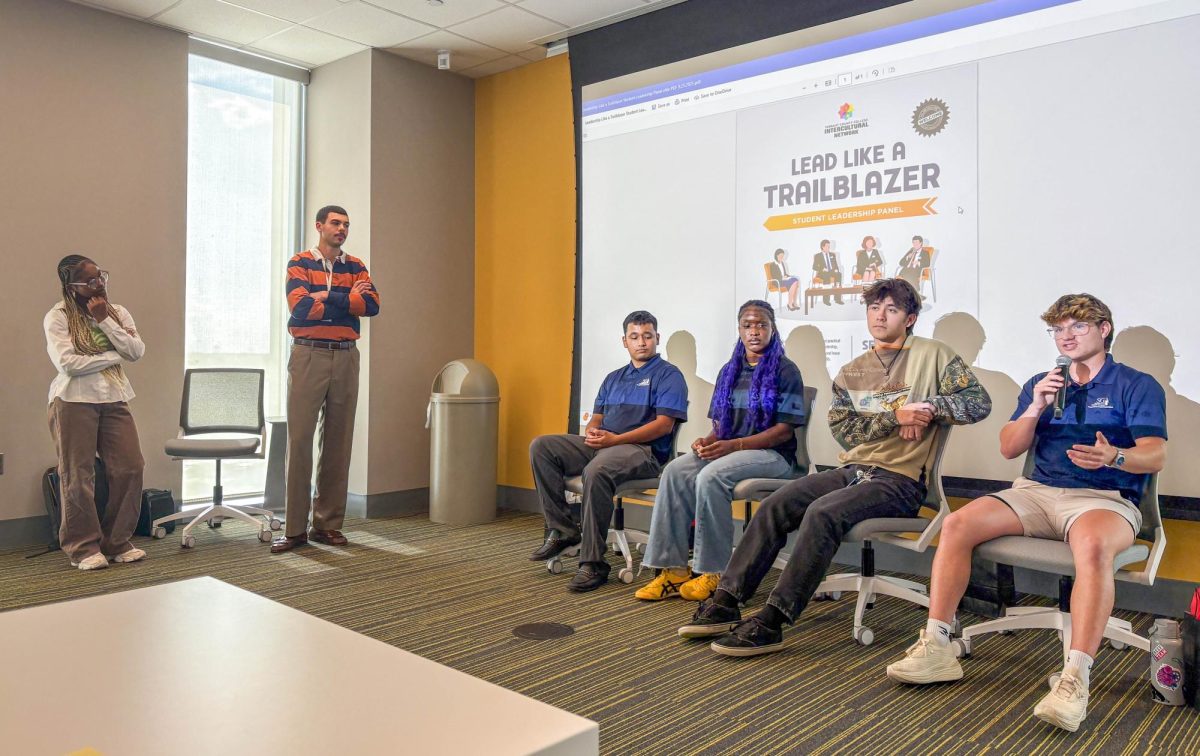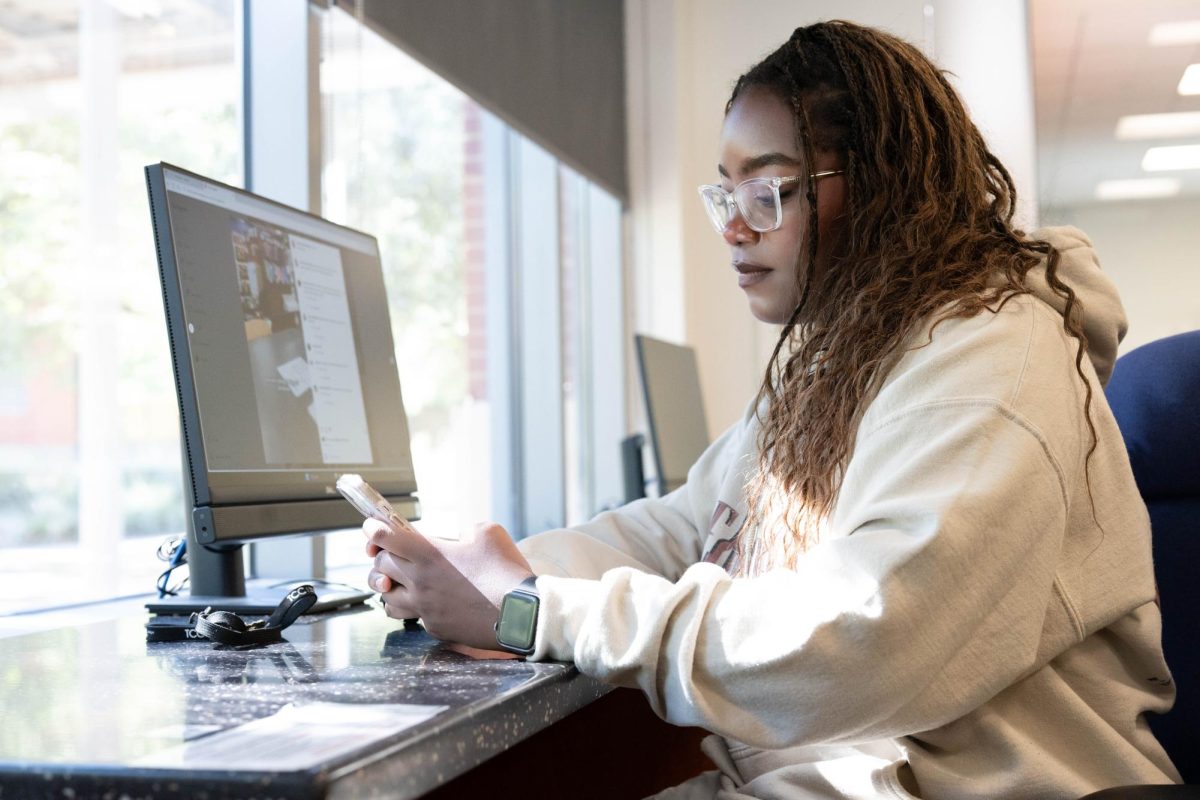Rebecca Balcarcel is a result of two cultures finding each other.
The NE Campus English associate professor shared the discovery of her mixed identity through her children’s novels to help others find theirs too.
Being a real-life link to two ends of the world, Balcarcel explored traditions from both origins.
“I grew up kind of bicultural. Half of my family was having tamales at New Year’s, and the other half was having black-eyed peas,” she said. “I think that was good for me, you know? It made me feel like the world was bigger. My ideas of what family is, and everything, transcended boundaries [from] just one culture. It was doubled.”
Born in Iowa, Balcarcel learned to accept her European identity from her mom’s side.
“There were miles of corn and not a single tortilla,” she said. “I was the little brown baby in the hospital with all the blonde hair, you know, my little, my black hair sticking up and you would never confuse me with any of the other babies because there was only one kind of dark.”
Balcarcel said she did not think of herself as different as she felt more like her northern European self.
“I guess I sort of thought I was white,” she said. “I don’t know if that sounds funny to say, but I was treated no differently in Iowa, and so I just didn’t think of myself as different.”
When her family moved to Texas when she was around 10 years old, Balcarcel found herself juggling her two identities.
“It was sweet that I grew up with my dad, [who was] sort of a celebrity in the little Iowa town,” she said. “They didn’t have but like two other Spanish speakers in the whole town. But he was so funny and sociable that everyone who knew him liked him, and so he never experienced cruelty or ugliness.”
Balcarcel danced through the discovery of her Guatemalan roots with the help of her dad’s guitar strings. Her love for the Guatemalan side of her culture grew as she was entering her adulthood.
“I enjoyed growing up with guitar songs in Spanish, like my dad singing to my mom every day, and they trained me to sing in Spanish too, so that we could have three parts and stuff,” she said.
She had to teach herself to embrace both sides of her identity. She said she was embarrassed to wear clothing from Guatemala until she got to be an adult. After some time, she found pride in her traditional clothing.
She said she began her career when she got a degree in creative writing and poetry. She was writing poems mostly about nature when it struck her that she could write poems about her own upbringing.
“That stack of poems I sent to an agent, and the agent said, ‘This would really work as a novel,’” Balcarcel said. “I took a whole summer, and I just worked hard and turned those poems into a story, and those poems became scenes in the book. And that was my first book, ‘The Other Half of Happy.’”
Her novels are a representation of her young self who was on the path of discovering her biracial self, who felt as a child that she wasn’t sure where she fit among both sides of the family.
“My books have bicultural characters who are searching for that identity because it does get complicated when you feel like, ‘Wait, am I a real Latina because I don’t speak Spanish fluently or do I count in my Anglo family because my skin is darker than everyone else’s?’” she said.
She based her first novel off her experience being a kid with two different backgrounds and her gradual love for her Guatemalan culture.
Balcarcel said she realized how she had been rejecting her Guatemalan culture when she started reading “The House on Mango Street” by Sandra Cisneros that follows the experience of a Mexican American girl facing societal problems.
“I had never, ever read about a kid so much like me, and I didn’t even think I could write about my experience – my real experience – but when I saw that character, it sort of opened the whole world for me,” she said.
In her first novel, Balcarcel includes a character who must find her other half to be truly happy. The book starts out with her not wanting to wear the indigenous clothing that was a gift from her Guatemalan grandmother and ends in meeting her and being happy to wear her outfit.
“She’s discovering that this is a richness that she shouldn’t cut herself off from, that it adds to her life,” she said. “It’s not something to be embarrassed about.”
Likewise, her second novel, “Shine on Luz Véliz,” is another depiction of a very complicated but sweet part of her life where she finds out she has a half-sister she has never known before.
“When I was about 40-ish, my dad found out that he had a daughter in Guatemala who’s older than me, so I have a half-sister,” she said.
She said her dad was so heartbroken to have lived his life without knowing or helping his daughter that he was determined to get to know her resulting in Balcarcel’s family going to meet her sister in Guatemala.
“It turns out she’s a delightful, interesting person,” she said. “I decided to write in my second book about a sister coming to live with the main character.”
NE English professor Lynda Davis said Balcarcel was also a student here, like her. She said Balcarcel is one of the most kindhearted people she has ever met, and she’s passionate about her writing.
Davis said Balcarcel was once a student of an English professor who mentored her.
“So, Rebecca was once her student, and now she’s in the office of the professor [who] she studied creative writing under,” Davis said.
Jeff Nelms, another NE English professor, said he has known Balcarcel ever since she had been teaching here.
“She’s always had really close connections with her students, and she enjoys that.” he said. “I know that last week she was very excited because she had a student who said that the poem they were doing had changed her life… That’s the reason why I think she teaches for those kinds of moments.” 
